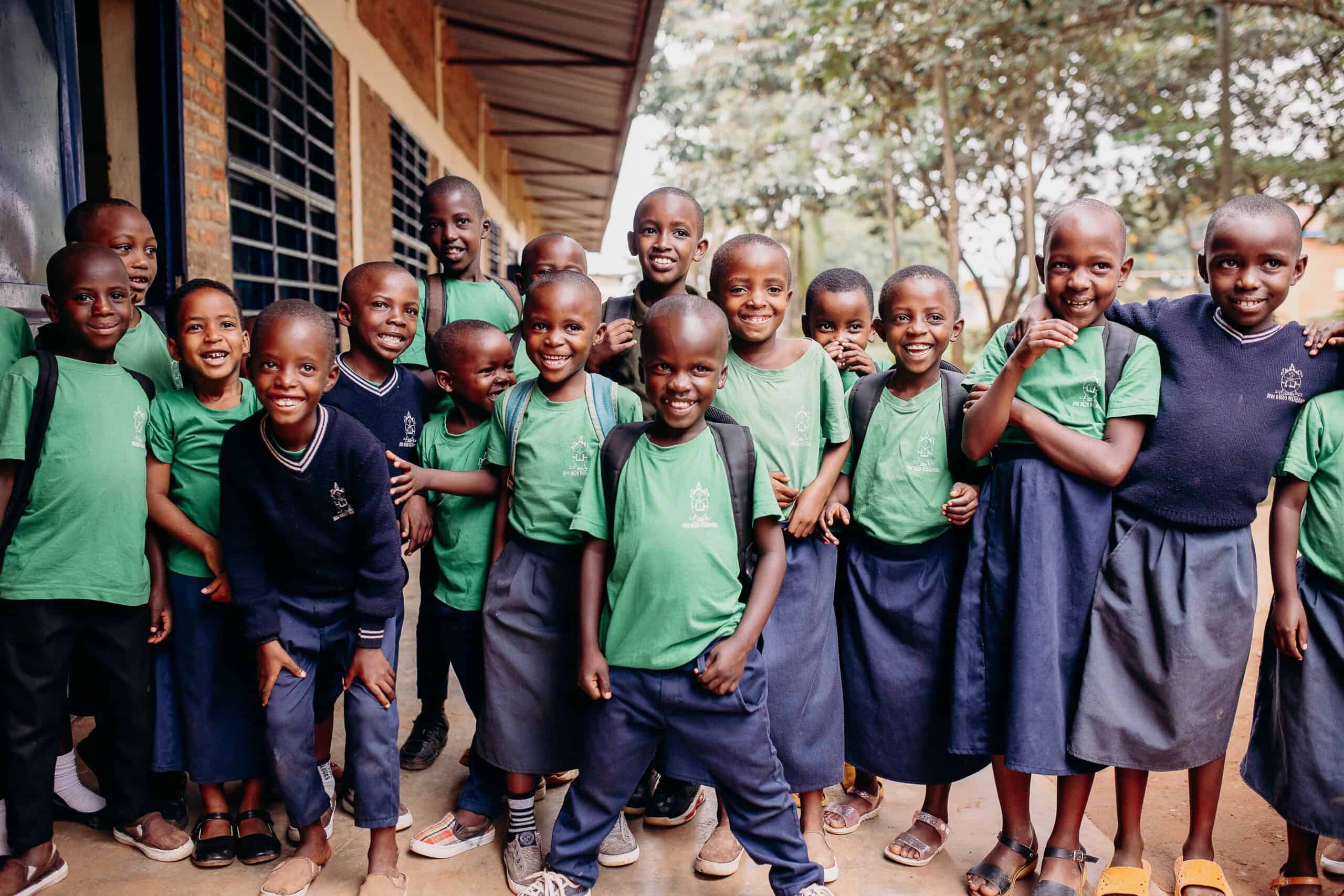
Whether you’re looking for a non-profit to support, doing research on child sponsorship or are curious about Compassion, we know you have questions. Recently, we asked both current supporters and those interested in our mission for their top “want-to-knows” so we could provide answers. And answer we did below!
Our team is ready to answer any question you have about Compassion and what we’re doing to release children from poverty in Jesus’ name. If you still have questions after reading, please reach out to us!
What’s Here:
- How Does Compassion Use Donations?
- Does Compassion Allow Trips or Ways to Meet Sponsored Children?
- Do Sponsored Children Ever Make Contact With Their Sponsors?
- Why Can’t Sponsors Send Physical Gifts to Sponsored Children?
- At What Age Does a Child “Age Out” of the Compassion Program?
- What Happens to a Child’s Support If Someone Can No Longer Sponsor Them?
- How Does Compassion Reach the Most Vulnerable Children?
- How Do You Support the Mental Health of Children?
- Where Can I Get More Letter Writing Help & Templates?
- How Can I Volunteer to Help?
1. How Does Compassion Use Donations?
At Compassion, we take financial accountability seriously, stewarding each donation to make the biggest impact. Whether you choose to donate to a cause or sponsor a child, your money goes toward releasing children from poverty.
Let’s get down to specifics. When you give, at least 80% of your donation:
- Empowers local churches in impoverished communities to run child development centers where children come for physical, emotional, mental and spiritual care.
- Covers the cost of providing that care, including education, hygiene training, medical checkups, child protection, nutrition support and more.
- Introduces children to the gospel in a culturally relevant and age-appropriate way.
The smaller portion of your donation helps children in a different, yet just as important, way. It pays for administration, marketing and fundraising so we can reach even more children.
An estimated 333 million children live in extreme poverty around the world. Your support helps us continue in our mission of reaching these children with life-changing care and the hope of the gospel.
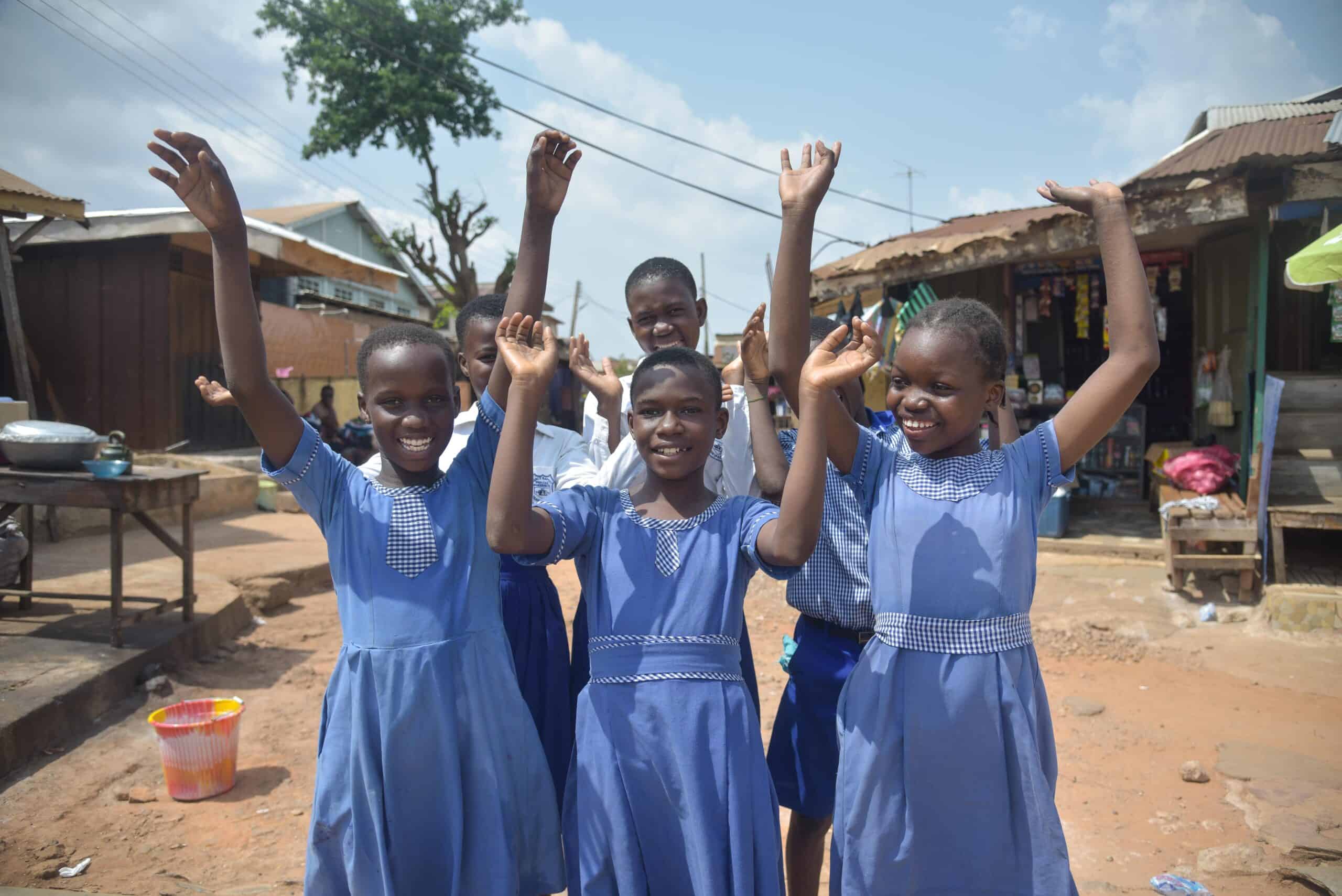
2. Does Compassion Allow Trips or Ways to Meet Sponsored Children?
When you sponsor a child, they can feel like family. And many sponsors wish to meet the child they’ve built such a life-giving relationship with. Through Sponsor Trips and Visits, we help sponsors experience a child’s home country and meet the child they sponsor.
These experiences were placed on hold due to the impacts of COVID-19. However, Compassion has officially relaunched Trips and Visits!
We’re excited to have 12 trips planned for 2025-2026. While we’ll be prioritizing supporters whose trips were cancelled due to COVID-19 first, these experiences will be open to the public should spots become available.
To learn more about applying for upcoming trips or to see important updates, please visit and bookmark our Trips and Visits page.
3. Do Sponsored Children Ever Make Contact With Their Sponsors?
Sponsors can communicate with the child they sponsor by sending them messages through My Account, the Compassion mobile app (Apple or Google Play) or via mail. The sponsored child will also be able to respond to messages. Sponsors receive at least two communications per year (often more, especially if they write regularly).
Compassion doesn’t allow communication outside these tools. For example, sponsors shouldn’t try to find the child they sponsor on social media or try to visit a child on their own.
Why the strict boundaries? Because protecting the children in our program is our top priority. And we can’t appropriately protect them if we don’t facilitate communication.
It’s our responsibility to protect children from those who may not have their best interests in mind and to safeguard privacy for both children and sponsors.
Is There a Way to Find Out What Our Sponsored Children Are Up to After They Graduate?
After children graduate from the Compassion program, we’re unable to maintain records or updates. There are many reasons why, such as changes in staff, children moving away from the community, etc.
However, many graduates move on to do incredible things, such as providing medical care or building homes for those in their communities. Other graduates become speakers on behalf of Compassion, sharing their stories to help us release other children from poverty.
So although there’s not a way for you to follow the child you sponsor’s journey into adulthood, know that God is still working in their lives and using them in beautiful ways.
Of 99 program alumni surveyed in the Dominican Republic, 90% reported serving in their communities with 73% doing so at least weekly.

4. Why Can’t Sponsors Send Physical Gifts to Sponsored Children?
Many sponsors want to send the children they support special gifts. Unfortunately, we’re not able to send physical packages due to customs guidelines, theft and the high cost of shipping internationally.
But there are plenty of other ways you can bless the child you sponsor! For example, you can send a monetary gift. With this gift, church staff will help the child buy what they need most. You can do the same for a child’s family or Compassion center.
You can also send scannable, flat, paper items, such as greeting cards, coloring pages or even photos. Just make sure the items are no larger than 8.5” x 11”.
For more information about gifts, such as what you can give and how, check out our Gift FAQs.
5. At What Age Does a Child “Age Out” of the Compassion Program?
The graduation age for our program ranges from 18 to 22 years old, depending on the country the child lives in. If you’re a current sponsor, you may be able to see the estimated date your sponsored child will complete the program inside My Account.
Does a Sponsored Child Still Receive Financial Support After Graduation?
Once a child graduates, they’ll no longer receive financial support from Compassion. However, they’ll still be surrounded by a loving community within their local church who will continue to encourage them.
Before they graduate, Compassion children are cared for physically, mentally, emotionally and spiritually. They graduate with healthy bodies, a higher level of education and the confident ability to financially support themselves.
The love and care they receive as children through the Compassion program enables them to thrive as adults.
97% of surveyed program participants said they were released from poverty in Jesus’ name.
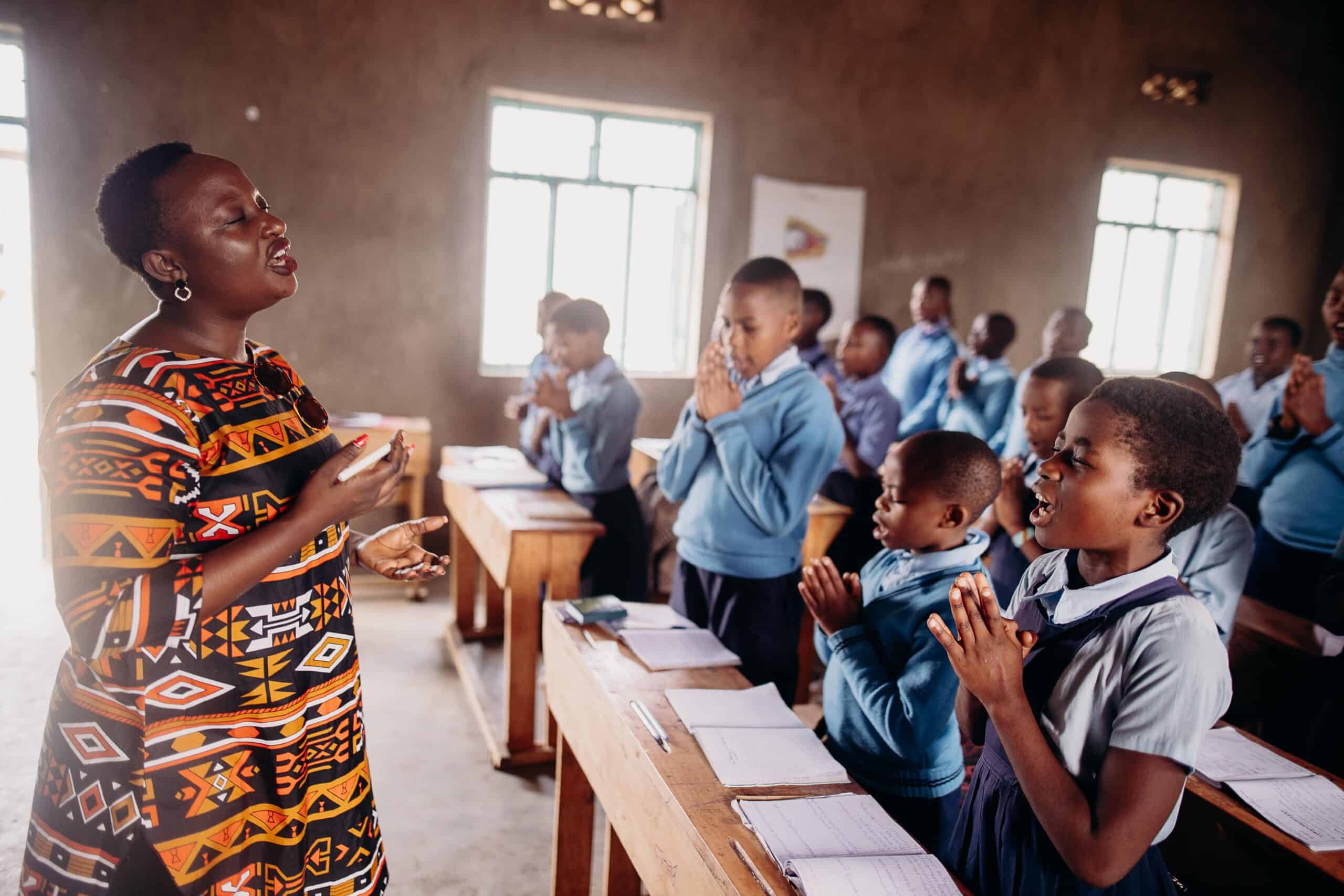
Photo by: Richard Miller
6. What Happens to a Child’s Support If Someone Can No Longer Sponsor Them?
Children enrolled in Compassion’s program are still cared for, even when they’re not sponsored. This is made possible through generous donations to our Unsponsored Children’s fund.
Through this fund, we deliver medical care, malnutrition monitoring, education and more to children as they wait for new sponsors. Once a child is sponsored, those funds are redirected to other waiting children in need.
7. How Does Compassion Reach the Most Vulnerable Children?
All children living in impoverished communities need support. However, it’s our goal to reach the children in greatest need first. How do we do that?
- Partnering with local churches: All our work is done in partnership with local churches in impoverished communities. Because these churches are engaged in their communities, they know best the needs and challenges of the children living there. The church’s role in the community enables them to confidently choose the children who need Compassion’s support the most.
- Providing clear registration guidelines: To help guide our church partners, we have a clear set of guidelines they must follow when selecting children. These guidelines determine the level of a child’s need and their ability to benefit from our program. For example, children should fall within the local poverty index and have good access to the church.
- Prioritizing the most vulnerable: Our local church partners give special priority to children who suffer from chronic illness or malnutrition, can’t go to school, are orphaned, abandoned or exploited, are living with a single parent or caregiver, or have a physical or mental impairment.
We know that poverty doesn’t impact all children in the same exact way. If a child is in desperate need, even if they don’t meet all the criteria, exceptions can be made so they receive support.
Currently, Compassion serves 2.3 million children (and counting).
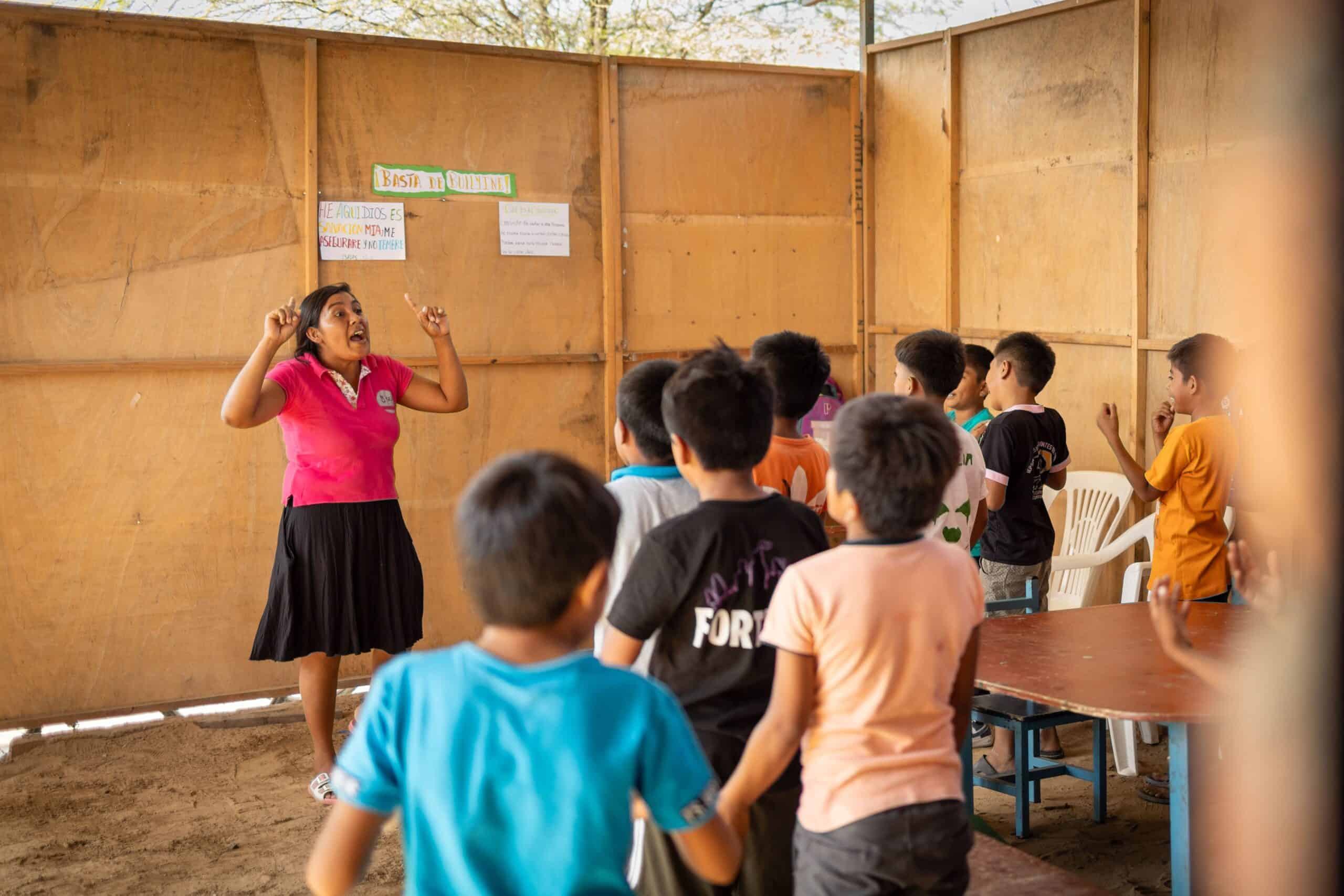
Photo by: Fernando Sinacay
8. How Do You Support the Mental Health of Children?
Poverty affects a child’s entire well-being. So at Compassion, we work to meet the physical, emotional, spiritual and mental health needs of children living in poverty. How do we support mental health specifically?
- Delivering education: Access to education helps children go from thinking “I can’t” to “I can,” empowering them to see beyond their current circumstances and into a brighter future. With goals and dreams to achieve, they’re inspired to move forward instead of allowing poverty to keep them down.
- Inspiring community awareness: Compassion staff offer training that encourages psychological safety in the community, removing stigmas around mental health. This creates a community of support, inspiring children to speak up when they’re struggling.
- Providing training for children: Compassion teaches children in our programs healthy coping skills for dealing with the challenges poverty brings. These skills help children build resilience while protecting them from harmful coping mechanisms.
- Screening for signs of distress: Compassion trains our staff members who work alongside children to screen for signs of distress or suicidal ideation, protecting children from harm.
- Sharing the hope of the gospel: Compassion points children to the hope only found in Jesus by sharing the gospel with them in an age-appropriate and culturally relevant way. Discipleship, combined with all of the above, helps children thrive despite their circumstances.
9. Where Can I Get More Letter Writing Help & Templates?
The letters sponsors write to children aren’t just words on a page. Instead, they’re tangible reminders of hope. We know it can be hard sometimes to know what to write and when. Luckily, we’ve got a lot of great guides full of tips, tricks and templates.
- Want templates to use? Sample Letters: 6 Sponsor Letter Examples to Inspire You.
- Looking for prompts to jumpstart your letter? 80 Letter-Writing Prompts.
- Ready to speed up your letter writing? Busy? Write Your Sponsored Child Faster With These 10 Tips.
- Want some letter writing tips? Sponsors Share Their Best Letter Writing Tips.
- Need ideas for photos to send? 7 Photo Ideas to Snap and Send to Your Sponsored Child.
- Have questions about writing letters? FAQs About Writing to Your Sponsored Child.
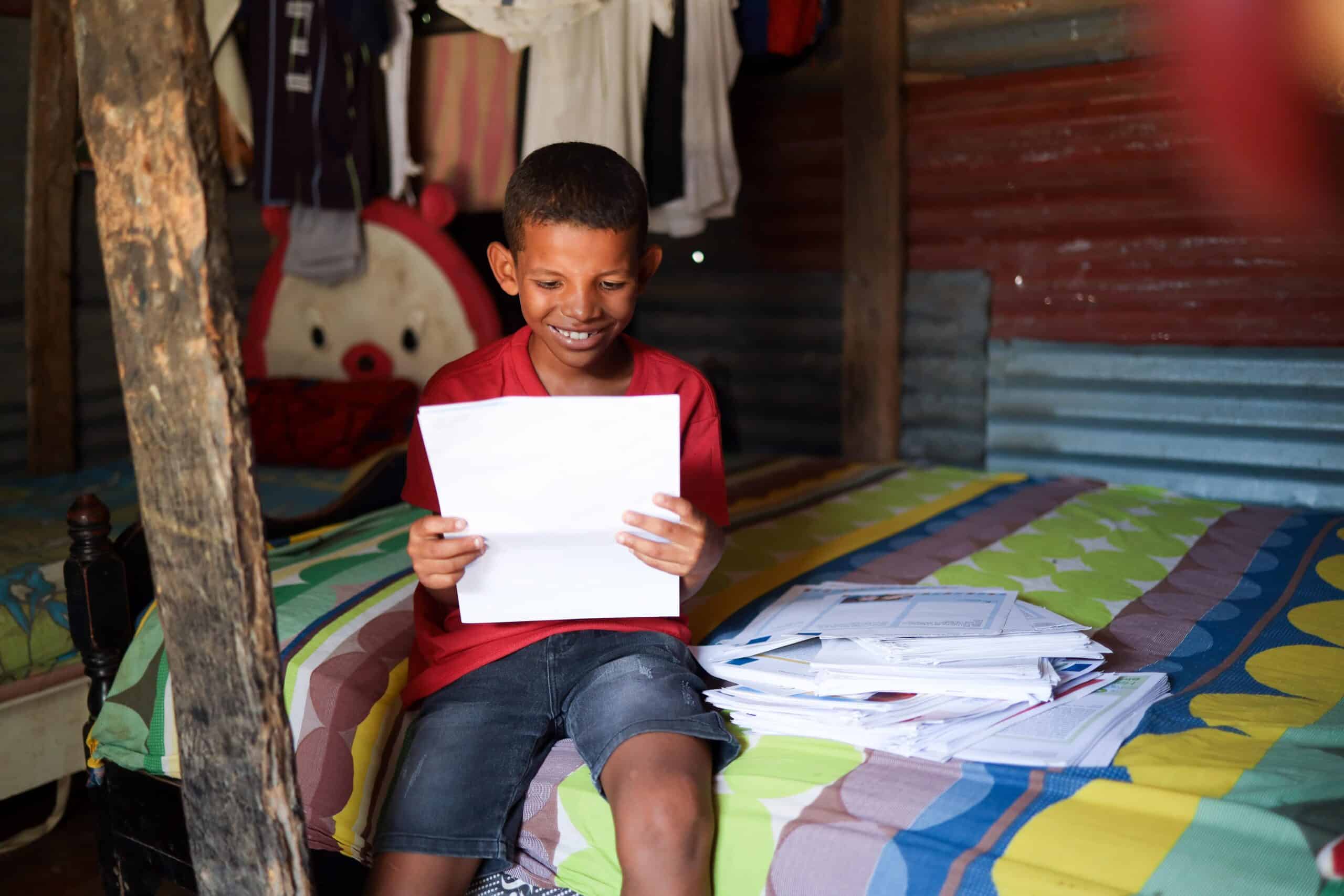
10. How Can I Volunteer to Help?
We can’t release children from poverty in Jesus’ name without you. As a volunteer, you can use your time and talent to help us share our mission with others who want to make a difference.
Here are some ways you can volunteer with Compassion:
- Volunteer at Compassion Headquarters: Join us on-site at the Global Ministry Center in Colorado Springs. As a volunteer on-site, you might send mail out the door to our supporters, prepare materials for events or even give building tours. We have various volunteer opportunities available. If you’re interested, please send an email to [email protected] for more information.
- Volunteer at events near you: Compassion partners with artists, pastors and speakers at numerous events each year to spread the hope of child sponsorship. You can get involved by becoming an event volunteer. There are a lot of different ways you can help at events, from helping us set up the Compassion table to supporting those who have said yes to sponsorship.
For more information about volunteer opportunities, including requirements and next steps, visit our Become a Compassion Volunteer page.
Have More Questions?
We’re here to help! Learn more about Compassion and how we work in our FAQs.








0 Comments |Add a comment